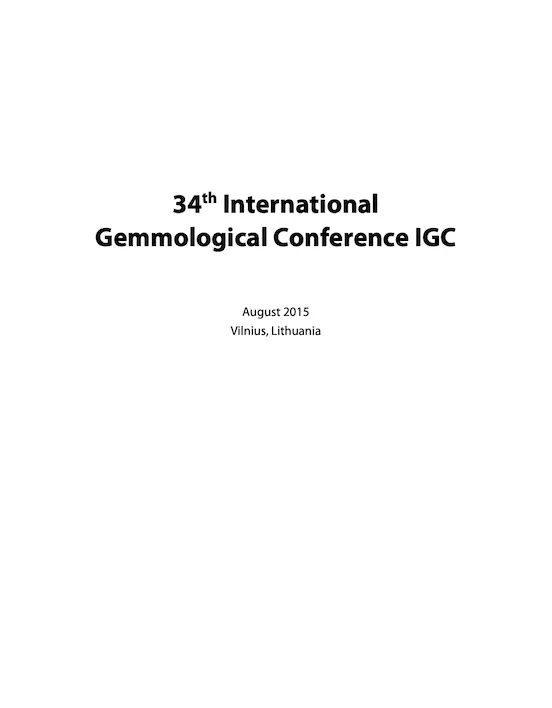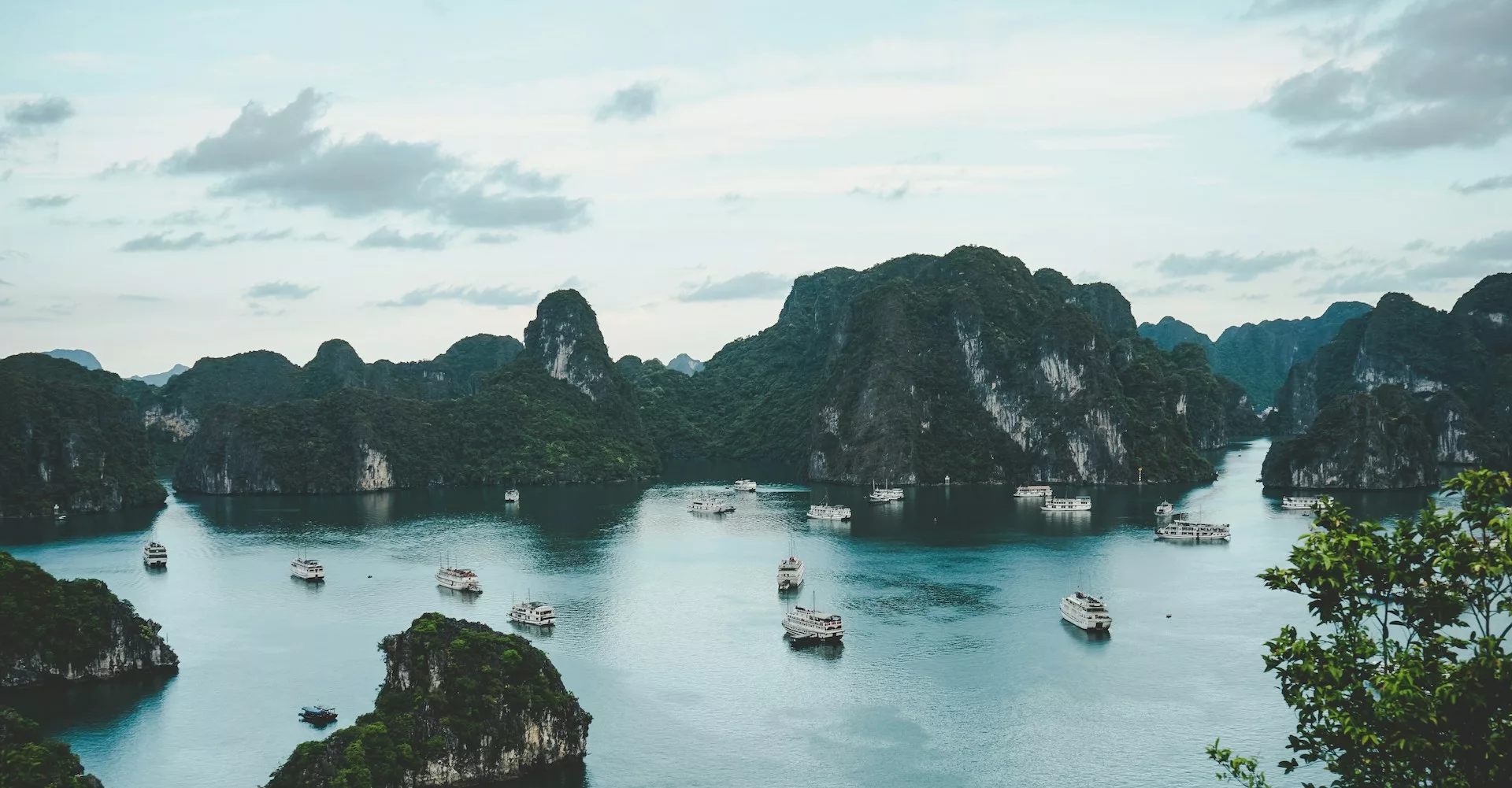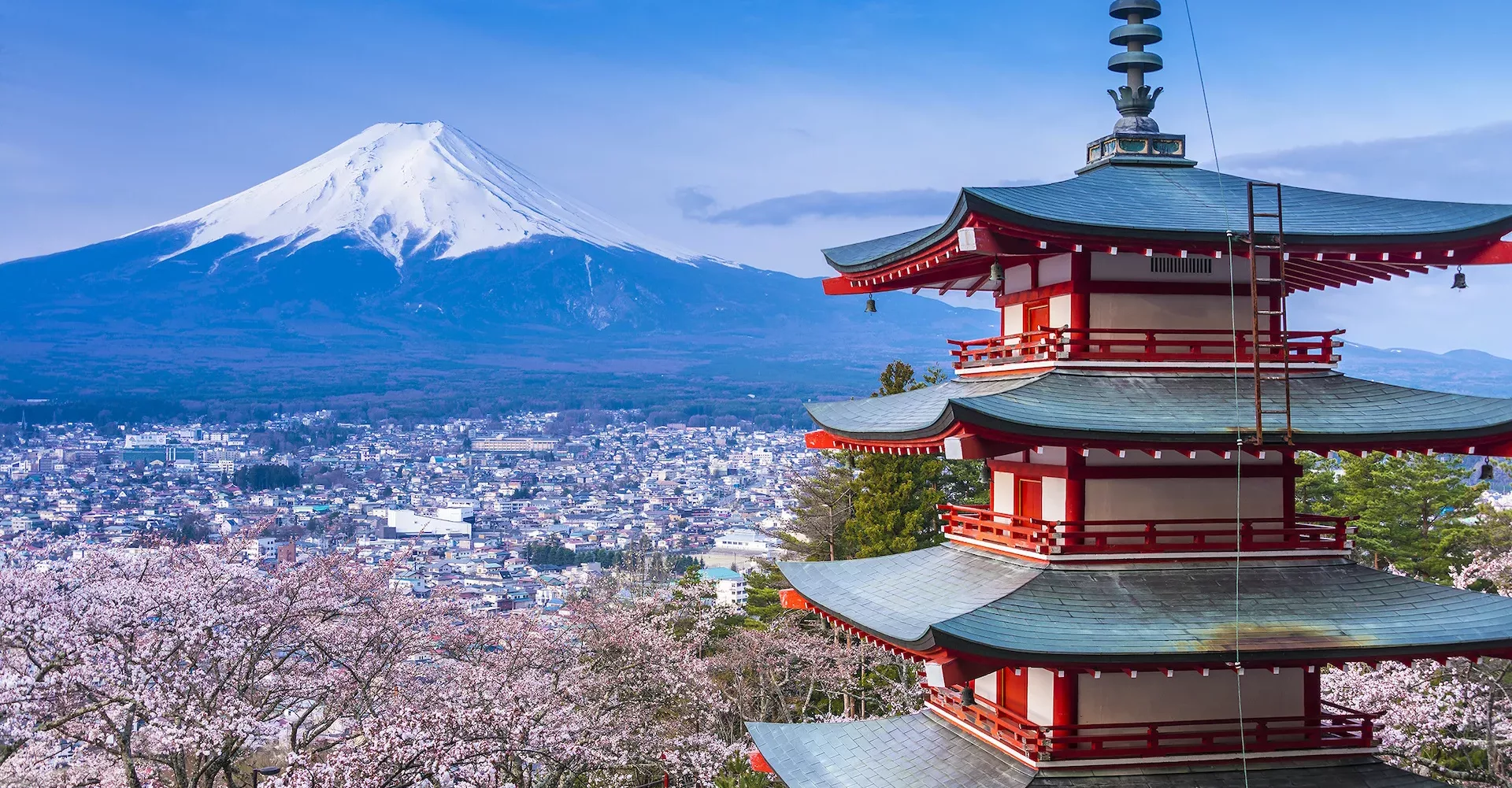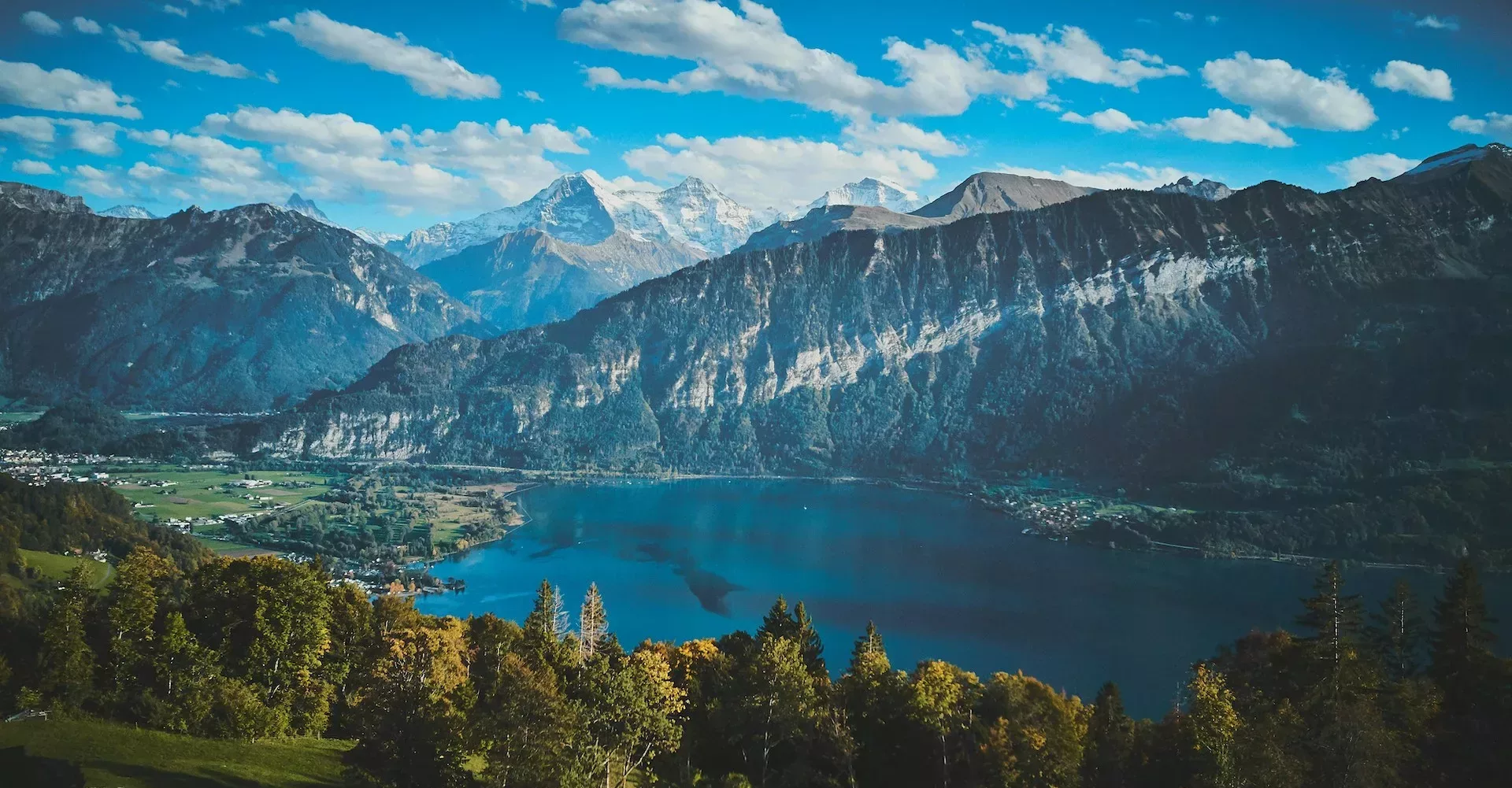34th IGC 2015 Vilnius, Lithuania
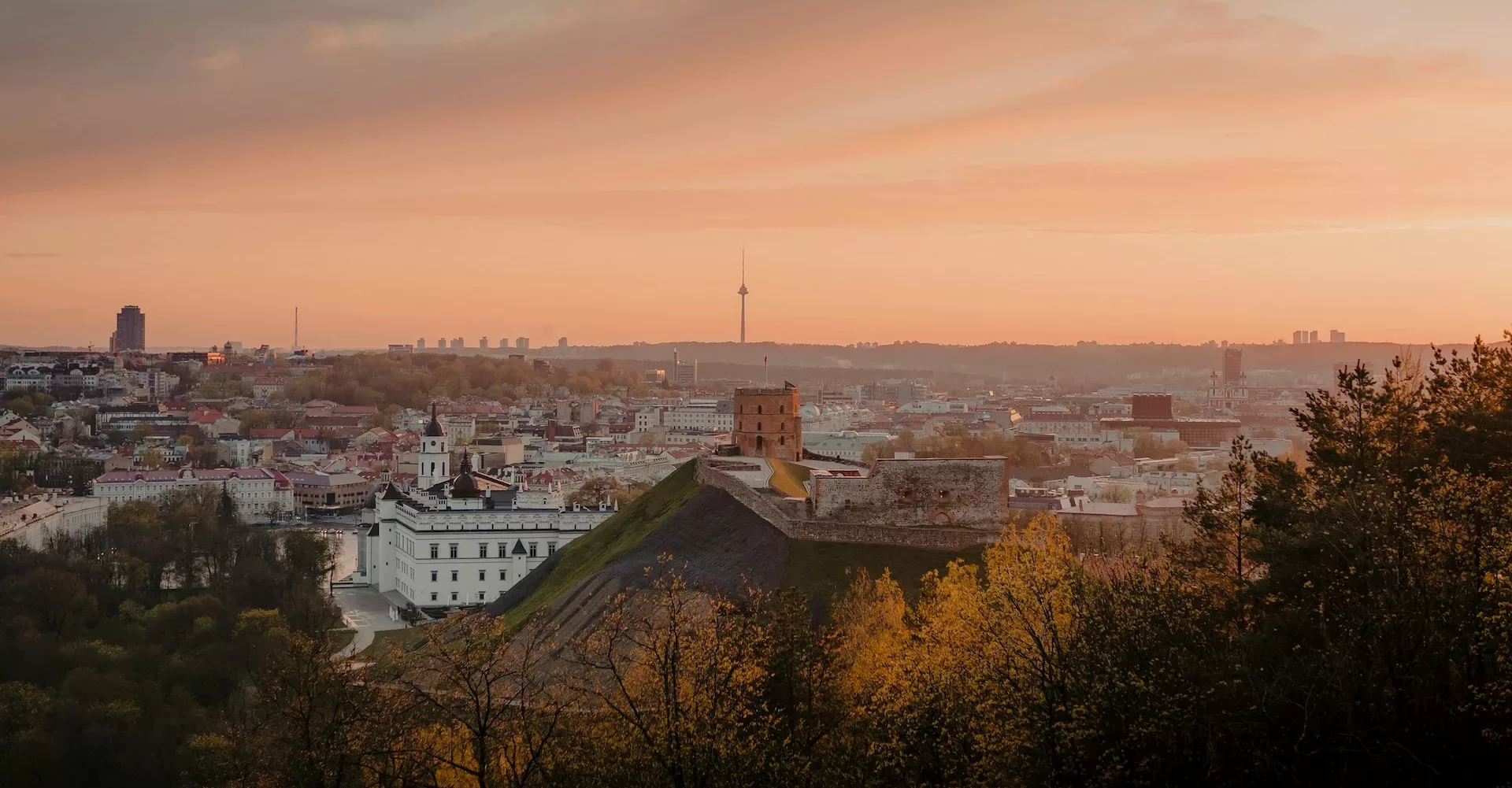
Location and Working Hours
Vilnius, LithuaniaIGC 2015: Vilnius, Lithuania
Dear Participants,
We are really honored for the first time to host IGC Conference here, in Lithuania – “Lonely Planet“ Best in Travel destination for 2015. Thank you for taking this great opportunity to come to Europe’s Northern Baroque pearl – capital Vilnius and our Amber land, Lithuania. Many of you are coming from afar to share great ideas and experiences, all in the single love to gemmology.
Since I joined IGC, I have been impressed by high level of intelligence and the pool of knowledge of great IGC community that was built almost 90-ty years ago and still continuing to grow. From Greenland to Japan, from France, Germany to India, Sri Lanka to Australia, from Tanzania, Switzerland to Vietnam, USA, Canada and many more – the community’s in-depth research and awareness in science of gemmology shines through.
I am truly delighted that our worldwide dialogue and exchange in gemmological research will be held with the highest-level standard here, at Vilnius University, one of the oldest Alma Mater in Europe, developing its deep scientific traditions for over 430 hundred years.
I wish all of you an inspiring conference and great discoveries and emotions visiting our charming Vilnius and beautiful Lithuania – the country where World Amber Road starts.
Dr. Arūnas Kleišmantas
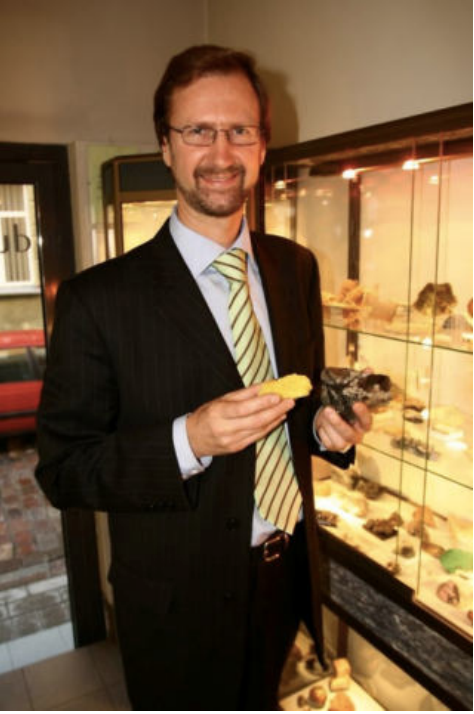
Conference
Vilnius University
Vilnius (Lithuania)
Thursday 27th August
8.30–9.00 Registration at the Small Aula, Central Building, Vilnius University
9.00–9.45 Opening ceremony at the Small Aula, Central Building, Vilnius University
9.45–10.15 Coffee break
Amber/Diamonds Session
10.15–10.35 Sigitas Podėnas: Crane flies (Diptera, Tipuloidea) from Baltic amber
10.35–10.55 Albertas Bitinas: Amber in the Southeast Baltic Sea region: Geological aspect
10.55–11.15 Jonas Satkūnas: Perspectives of amber production in Lithuania
11.15–11.30 Coffee break
11.30–11.50 Willow Wight: Canadian Amber—History and significance to science
11.50–12.10 Lore Kiefert: Natural green amber from Ethiopia
12.10–12.30 Tay Thye Sun, Arunas Kleismantas, Thet Tin Nyunt, Zheng Minrui, Murali Krishnaswamy, Loke Hui Ying: Burmese amber from Hti Lin
12.30–14.00 Lunch Chairperson Dr. Emmanuel Fritsch
14.00–14.20 Thomas Hainschwang, Franck Notari, Emmanuel Fritsch: Natural “lonsdaleite and CO2 rich“ diamonds
14.20–14.40 Hiroshi Kitawaki, Mio Hisanaga, Masahiro Yamamoto, Kentaro Emori: Type Ib yellow to brownish yellow CVD synthetic diamond
14.40–15.00 Joe C.C. Yuan: Identification and influence to the future market of synthetic diamond
15.00–16.00 Poster session (see below)
16.00–16.20 Coffee break 16.20 Conference day closes
16.30–18.00 Excursion to Palace of the Grand Dukes of Lithuania
19.30 Transfer to Belmontas park
20.00–22.00 Dinner at Belmontas restaurant
Friday 28th August
Coloured Stones/Testing Techniques Corundum natural, treated
8.00–8.45 Executive Committee meeting Chairperson Dr. Dietmar Schwarz
9.00–9.20 Anette Juul-Nielsen: Small scale mining of rubies and pink sapphires at Fiskenaesset, Greenland
9.20–9.40 Jayshree Panjikar, Aatish Panjikar: Investigation into the asterism observed in the star ruby from Neriya, Karnataka, India
9.40–10.00 Kentaro Emori, Hiroshi Kitawaki: Geographic origin determination of ruby and blue sapphire based on trace element analysis using LA-ICP-MS and 3D-plot
10.00–10.20 Emilie Elmaleh, Stefanos Karampelas, Susanne Theodora Schmidt, Federico Galster: Zircon inclusions in blue sapphires
10.20–10.40 Coffee break
Coloured Stones/Testing Techniques Corundum natural, treated
10.40–11.00 J.C. (Hanco) Zwaan, Eric Buter, Regina Mertz-Kraus, Robert E. Kane: Alluvial sapphires from Montana – Inclusions, geochemistry and indications for a metasomatic origin
11.00–11.20 E. Gamini, G. Zoysa: Sapphire deposits of Sri Lanka
11.20–11.40 K. Schmetzer, M.P. Steinbach, H.A. Gilg, A.R. Blake: Dual-color double stars in corundum and quartz
11.40–12.00 Visut Pisutha-Arnond, Chaniya Rochd, Wilawan Atichat, Pornsawat Wathanakul, Nalin Narudeesombat: Role of Be in reduction and oxidation heating of sapphire
12.00–13.30 Lunch
13.30–13.50 Walter A. Balmer, Michael S. Krzemnicki: Be-detection by FTIR on corundum: A preliminary report
13.50–14.10 Thanong Leelawatanasuk, Nalin Naruedeesombat, Namrawee Susawee, Pantaree Lomthong, Pornsawat Wathanakul: “Surface de-leaded” ruby
14.10–14.30 Ahmadjan Abduriyim: Residual pressure distribution and visualization of mineral inclusions in corundum: application of photoluminescence spectroscopy in relation to sapphires from New England, New South Wales, Australia
14.30–14.50 S.I. Liu, C.M. Ouyang, F.Y. Ng: The application of VPSEM-Raman coupled system in studying Fei Cui
14.50–15.50 Poster session (see below)
15.50–16.10 Coffee break
16.10 Conference day closes
17.30 Departure by bus from Vilnius to Trakai
18.30 Family picture with all the participants at the Trakai Castle
20.00–23.00 Gala dinner at the Trakai Castle
Saturday 29th August
Coloured Stones/Pearls Session
9.00–9.20 Shane F. McClure: Brazilian emeralds from the Belmont mine
9.20–9.40 Masaki Furuya, Scott Davies: Gemmological features of pallasitic peridot of six different meteorites
9.40–10.00 R. Serov, Y. Shelementiev, A. Serova: Russian demantoid color origin
10.00–10.20 Andy H Shen, Zemin Luo, Mingxing Yang: Country of origin determinations of nephrite jades from East Asia Regions
10.20–10.40 Coffee break Chairperson Dr. Jayshree Panjikar
10.40–11.00 Karen E. Fox: Opal Adventures in the Land of Never Never
11.00–11.20 Emmanuel Fritsch, Peter Megaw, Tyler L. Spano-Franco: Green-luminescing, gem hyalite opal from Zacatecas, Mexico
11.20–11.40 Ulrich Henn, Observations on some rare gem materials
11.40–12.00 Claudio C. Milisenda, Stefan Koch, Stefan Müller, Tom Stephan, Michael Wild: Gemstones with photochromism
12.00–12.20 Dietmar Schwarz: Colored gemstones – Mines and markets
12.20–14.00 Lunch Chairperson Dr. Pornsawat Wathanakul
14.00–14.20 Elisabeth Strack: The present situation of freshwater pearls from Wisconsin
14.20–14.40 Michael S. Krzemnicki, Vincent Revol, Carina Hanser, Laurent Cartier, Henry A. Hänni: X-ray phase contrast and X-ray scattering images of pearls
14.40–15.00 Nicholas Sturman, Artitaya Homkrajae, Areeya Manustrong, Nanthaporn Somsa-ard: X-ray computed microtomography (μ-CT) structures of known natural and non-bead cultured Pinctada maxima pearls
15.00–15.20 Sutas Singbamroong, Nazar Ahmed, Ayesha Rashid Ahmed, Mohamed Karam, Ghaliah Hassan, Sameera Mohammed, Nahla Al Muhairi: Observations on natural non-nacreous pearls reportedly from Tridacna (clam) species
15.20–15.40 Coffee break
15.40 Conference day closes
15.40–16.30 Executive Committee meeting
19.00–21.00 Dinner at the City Hall
Sunday 30th August
8.00–8.45 Executive Committee meeting Testing Techniques Session at the Donelaitis Hall, Faculty of Philology, Vilnius University Chairperson Dr. Karl Schmetzer
9.00–9.20 Lutz Nasdala, Chutimun Chanmuang, Tobias Häger, Wolfgang Hofmeister, Allen K. Kennedy, Peter W. Reiners, Tamás Váczi, John W. Valley, Bhuwadol Wanthanachaisaeng, Wu Fuyuan, Manuela Zeug, E. Gamini Zoysa: The scientific importance of gem zircon as analytical reference materials
9.20–9.40 Brendan M. Laurs: Modern mining methods for primary and secondary gem deposits in Mogok, Myanmar
9.40–10.00 Manfred Eickhorst: Technical progress report on LED, gemmology and sustainabily
10.00–10.05 Announcements
10.05–10.50 Coffee break
10.50–12.00 Conference closing ceremony. Conference ends
12.00–14.00 Lunch
Posters
- Gagan Choudhary: Emeralds from Jharkhand, India: An update
- Helmut Pristacz, Toshihiro Kogure, Vera M.F. Hammer, Gerald Giester, Manfred Wildner, Eugen Libowitzky, Lutz Nasdala: A review of synthetic turquoise
- Antonello Donini, Elena Gambini, Emanuela Castaman, Giuliano Radice: Unusual and curious gemological materials in laboratory
- Emmanuel Fritsch, Joel Ivey: Mustard Jasper or Bumble bee stone
- John M. Saul: “ELECTRUM”: Why was the same word used for amber and also for the naturally occurring alloy of gold and silver?
- Guanghai Shi, Yan Wang, Wei Shi, Ruihua Wu: Infrared spectral characteristics of ambers from three main sources (Baltic Sea, Dominican Republic and Myanmar) and their implications
- Elizabeth Su: Jadeite markets in China
- Thanong Leelawatanasuk, Namrawee Susawee, Marisa Maneekrajangsaeng, Saengthip Saengbuangamlam, Supparat Promwongnan, Nicharee Atsawatanapirom, Pantaree Lomthong, Pornsawat Wathanakul: Treated black sapphire
- Supparat Promwongnan, Saengthip Saengbuangarmlum, Thanong Leelawatanasuk: Synthetic ruby overgrowth on natural corundum

